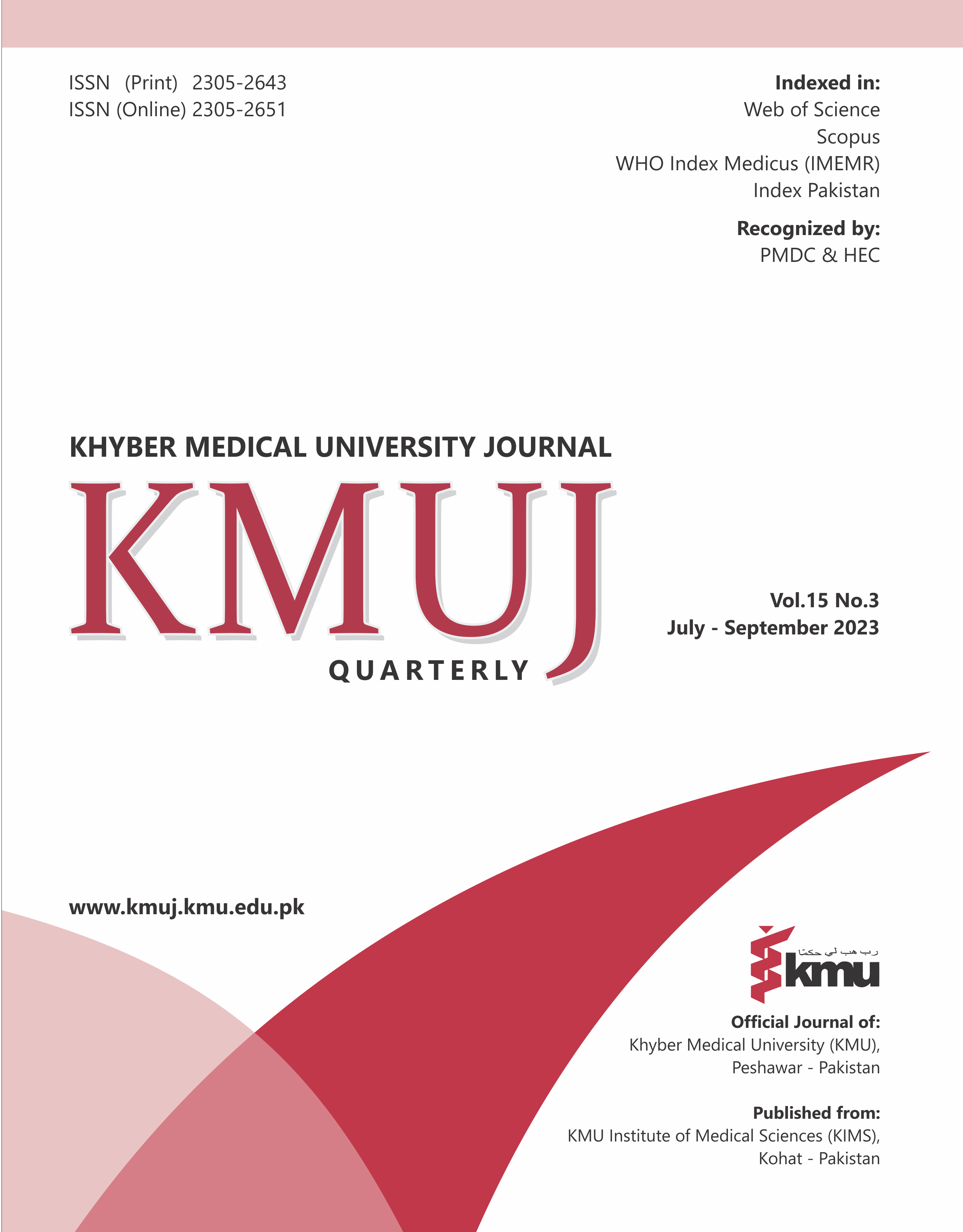Unpredictable future of medical teaching institution reforms amid political transitions in Pakistan
Main Article Content
Abstract
When implementing governance reforms, it is essential to understand the political economy, especially in the healthcare sector, where shifts in political power often have a significant impact.1 Like in several other countries, changes in political power influence the policies and priorities of previous governments, particularly affecting healthcare, which relies heavily on government funding and support. The medical teaching institution (MTI) reforms were designed to strengthen the provision of high-quality healthcare services and urgently improve medical teaching institutions across the country. These institutions serve as custodians for developing competent healthcare professionals, conducting innovative studies, and providing good-quality patient care. However, they faced challenges, including a shortage of faculty, outdated facilities, and tight budgets. MTI reforms were promulgated, and the institutions were provided with the necessary resources.2 The objective of the reforms was to grant MTIs autonomy, giving them more control over fund allocation, faculty hiring, and facility development. The goal was to create a healthcare system that is both more effective and efficient, meeting the demands of the general population.3
Despite the admirable concept, implementing reforms posed a significant challenge. The transition of power and changes in political leadership hindered reform efforts. Challenges arising from meeting competing demands from various stakeholders and the influence of political economy on the decision-making process might be attributed to the delay in implementing these reforms. The lack of continuity and consistency in the reform implementation process has presented challenges for MTIs, their employees, students, and the healthcare sector as a whole.
MTIs require strong governance frameworks and a defined set of rules to operate effectively. The autonomy granted by the MTI Act fosters timely decision-making, flexibility in responding to changing needs, and effective resource management. However, when reforms are put on hold, administrative procedures become cumbersome and delayed, making it difficult to reach decisions and efficiently administer the institution. This disruption upsets institutions and academia, and as a result, students are confused navigating two very different systems with distinct requirements and expectations. Such disruption could have a profound impact on educational standards.
To ensure the identification and rectification of potential inadequacies in the implementation and to suggest improvements, it is crucial to conduct continuous evaluations throughout the extended duration of the process. Political support is also vital for the success of reform initiatives.1 The backing of political figures and parties provides the essential energy and resources for effective execution. Understanding how political developments could impact reform efforts is important. Political or ideological concerns may cause reforms to be postponed, changed, or even abandoned, causing instability and volatility in the impacted sectors.1
The repercussions of this stop-and-start dynamic, especially for educational institutions, can be quite detrimental to the healthcare system. In light of the MTI reforms, they also have a significant impact on academics, teachers, and students. Concerns about the stability of work and future prospects for faculty members hired or recruited in accordance with the MTI Act may arise. Faculty reorganization or termination can take place when governance changes or act repeals interfere with ongoing teaching, administration, management, local policies, and research activities.
To meet these challenges, it's critical to emphasize the need for implementing such reforms over the long term, regardless of political differences. A comprehensive strategy supported by evidence and with participation from all stakeholders is essential for reforms to last and be successful. Having political backing and a continuous process for evaluation and modifications is essential, even when swift gains aren't always certain. Uncertain political alterations can have a significant impact on reform initiatives. By highlighting the significance of long-term commitment and consensus across political lines, we aim for more efficient and consistent reform implementation, which will eventually result in significant and long-lasting improvements.
Article Details
Work published in KMUJ is licensed under a
Creative Commons Attribution 4.0 License
Authors are permitted and encouraged to post their work online (e.g., in institutional repositories or on their website) prior to and during the submission process, as it can lead to productive exchanges, as well as earlier and greater citation of published work.
(e.g., in institutional repositories or on their website) prior to and during the submission process, as it can lead to productive exchanges, as well as earlier and greater citation of published work.
References
Ciminelli G, Furceri D, Ge J, Ostry JD, Papageorgiou C. The Political Costs of Reforms: Fear or Reality? : IMF SDN/19/08; 2019. Accessed on: July 07, 2023. Available from URL: https://www.imf.org/en/Publications/Staff-Discussion-Notes/Issues/2019/10/17/The-Political-Costs-of-Reforms-Fear-or-Reality-48735
Kamal Z, Aleem M, Aziz N, Amjad HM. Medical Teaching Institutions Reforms Act: Facts and Fictions. Pak J Med Sci 2021;37:1252-3. https://doi.org/10.12669%2Fpjms.37.5.4551
Farid G, Gul M, Obaid Z. Convenience, Courtesy and Care: The impact of MTI Reforms in Public Sector Teaching Hospitals on Patients’ Satisfaction. Bus Econ Rev 2023;15(1):29-46. https://doi.org/10.22547/BER/15.1.2
